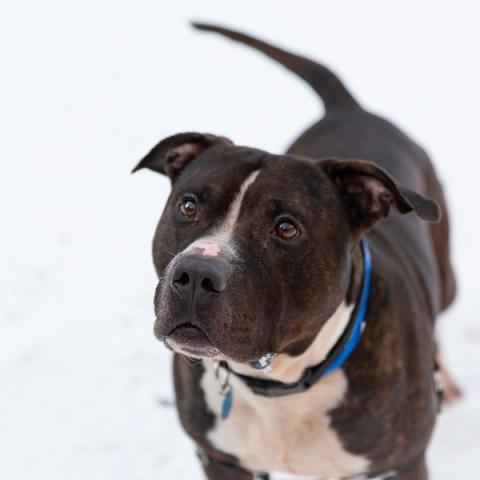
Holidays can be very enjoyable for people, yet stressful and potentially dangerous for pets. Keep the following tips in mind to keep your celebrations safe and enjoyable for all.
Remember, pets don’t naturally understand how to behave amid the many distractions of the holidays, so they need our help. Rather than assuming they would never eat off of the counter or jump up on grandma, set them up for success by managing their environment.
You can also help your dog master skills like remaining calm or basic obedience by enrolling in our training classes. This will keep holidays safe and pleasant for everyone!

Brush up on obedience before guests arrive
Whether you plan to host guests for dinner or visitors for several days, reviewing your dog’s skills beforehand will help set them up for success. Practice sitting politely for petting, leave it, and settling on a mat. All your hard work in classes will pay off.
Animal Humane Society also offers five levels of obedience courses. Completing these courses will give you practical skills for training your dog to be a well-mannered member of your household.
Prepare and practice a confinement schedule
If you plan to confine your pet during dinner or other parts of your weekend, get your routine ready now so your pet knows what to expect.
Giving them the run of the house and then confining them for hours while you and your guests are home may cause anxiety and stress-related vocalizing. Wherever you choose to confine your pet, make it an enjoyable, relaxing place to be.

Keep an exercise routine
Exercise not only keeps your pet healthy, but can alleviate the many stresses that accompany the holiday season. New people, elevated noise and activity levels, unusual smells, and irregular schedules can all contribute to stress-related behavior problems.
Making time for exercise not only tires them out, but guarantees personal time with you, further minimizing problem behavior.
Watch that door!
Your guests might not be accustomed to stopping escape artists, so prepare them in advance with these tips for preventing door dashing.
If there will be lots of children running in and out of the house, confining your pet to their safe space might be the best approach.
Be mindful of hazards
- Foods like chocolate, onions, garlic, alcohol, grapes, raisins, and sugar-free products can be harmful (even fatal) to your pets. Make sure your guests know not to feed your pets or leave food within their reach, and be sure to brush up on which popular holiday foods to avoid giving your pet. Even non-toxic but rich foods like turkey skin and gravy can cause pancreatitis.
- Protect your pet from hazards like pill bottles and other items that guests might leave on their nightstand. Remember that non-pet-owning guests may be unaware that a pet would swallow such things.
- Prevent fireplace accidents by keeping a screen up at all times. Consider using flameless LED candles in place of lit candles to avoid the risk of burns or house fires: a wagging tail can clear a coffee table in no time flat!
Supervise all interactions between pets and children
Even if your pet is relaxed around little ones, never leave them alone together. Young children do many things that either over-excite or frighten animals (screaming, running around, etc.) and could lead to a bite.
If you can’t supervise interactions, confine your pet to a safe space. Get more expert advice on supervising young kids and canines.
Consider boarding or finding out-of-home care for fearful pets
If you plan to host a dozen visitors and your pet can barely tolerate one without panicking, consider boarding them over the holiday or asking a trusted friend in a quiet home to pet-sit.
This should be given special consideration if there will be small children, unfamiliar pets, or constant activity for the entire weekend. While boarding can certainly be stressful as well, ask yourself which will be the safest and most controlled environment for your vulnerable pet.
Need some help deciding who should care for your pet? We’ve created a guide with factors to consider and questions to ask of your furry friend’s temporary caretaker or potential boarding facilities.
Questions?
We’re here to answer your behavior questions about your pet, and provide resources to assist you with problems you may be experiencing.



